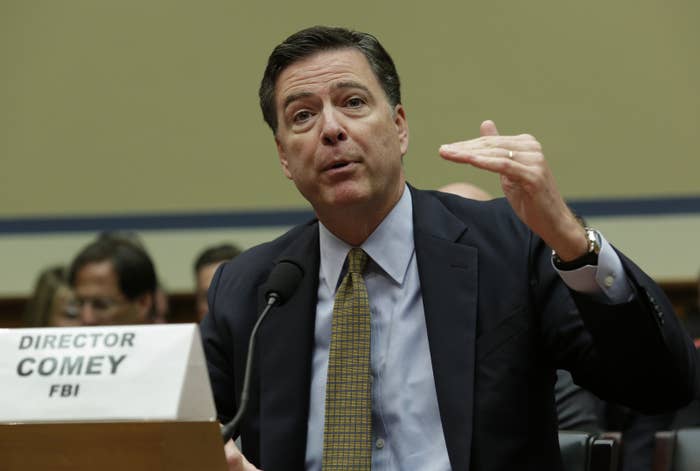
When FBI Director James Comey announced on Tuesday that he assessed Hillary Clinton's and her staff's handling of classified information to be "extremely careless" but not warranting of prosecution, many critics responded by pointing out that under the Espionage Act it is illegal to disclose classified information through "gross negligence."
Comey addressed those concerns directly on Thursday during his opening statement in an appearance before the House Oversight and Government Reform Committee.
COMEY: "There was a statute passed in 1917 that on its face makes it a crime, a felony for someone to engage in gross negligence. So that would appear to say, well, maybe in that circumstance you don't need to prove they were doing something unlawful, maybe it's enough to prove they were really, really careless beyond a reasonable doubt. At the time Congress passed that statute in 1917, there was a lot of concern in the House and Senate about whether that was going to violate the American tradition of requiring that before you go and lock somebody up, you proved they knew they were doing something wrong. So there was a lot of concern about it.
"The statute was passed. As best I can tell, the Department of Justice has used it once in the 99 years since reflecting that same concern. I know from 30 years with the Department of Justice, they have grave concerns about whether it's appropriate to prosecute somebody for gross negligence, which is why they've done it once that I know of in a case involving espionage.
"When I look at the facts we gather here, as I said, I see evidence of great carelessness, but I do not see evidence that is sufficient to establish that Secretary Clinton or those with whom she was corresponding, both talked about classified information on e-mail and knew when they did it, they were doing something that was against the law. So given that assessment of the facts, my understanding of the law, my conclusion was and remains, no reasonable prosecutor would bring this case. No reasonable prosecutor would bring the second case in 100 years focused on gross negligence. I know that's been a source of some confusion for folks, that's just the way it is. I know the Department of Justice, I know no reasonable prosecutor would bring the case. I know a lot of my former friends are out there saying, they would. I wonder where they were in the last 40 years because I'd like to see the cases they brought on gross negligence. Nobody would. Nobody did."
